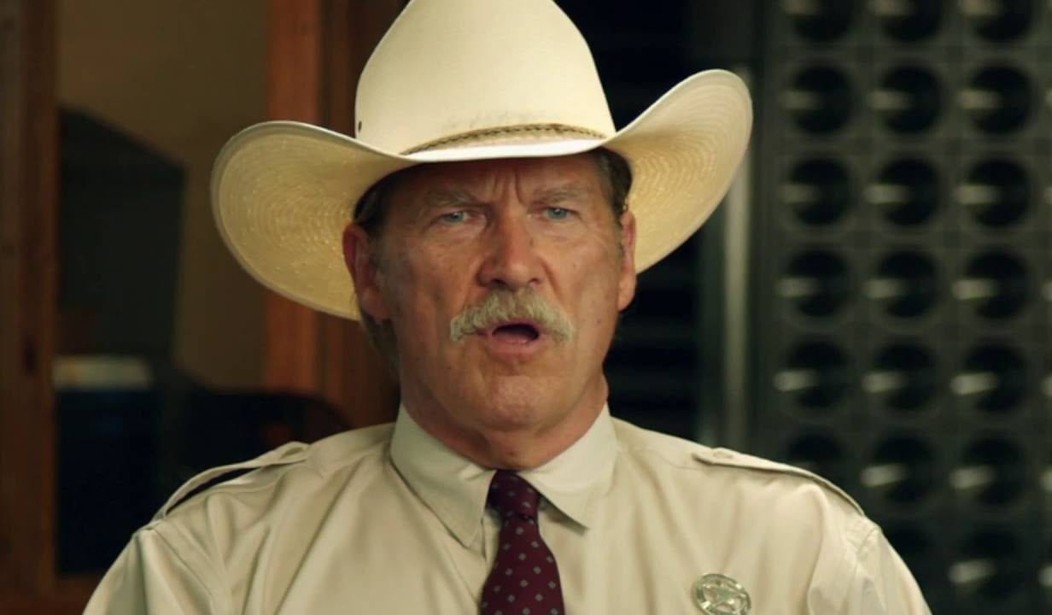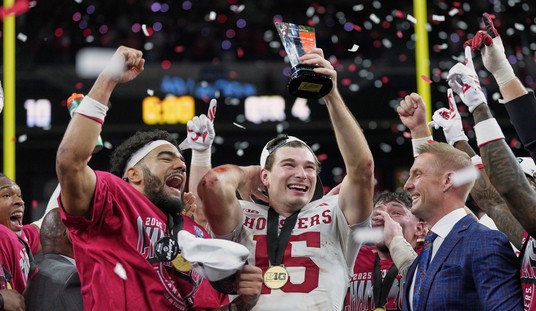Once upon a time, it was the movies that were considered the more creative, long-form type of visual entertainment. Now, it is film that seems stuck in a risk-averse formula, with television shows mostly opting to tell longer stories, and the proliferation of cable channels allowing singular visions.
Out of the 10 politically incorrect moments we have chosen (see the first five here ) only two came from the movies. It’s a trend that I don’t expect to change anytime soon, even though our number-one moment came from the summer’s most unexpected film.
5. Survivor’s Remorse (Starz)— Roots? No Thank You.
The LeBron James-produced sitcom Survivor’s Remorse is mostly about first-world Problems, as a basketball phenom from a Boston ghetto navigates sudden wealth, guided by a smart cousin who protects the money, and a fierce mother who has always protected him (played by the great Tichina Arnold, who had a similar role in Everybody Hates Chris. Remember her constant refrain, “My man has TWO jobs!”)
But the third world raises its ugly head in the episode “No Child Left Behind.” Moms goes on a Roots quest and finds out from an ancestry website that she has Nigerian DNA. So, she gets all excited and hauls her eye-rolling family to a Nigerian restaurant where she proceeds to befriend the owner.
Before you know it, Moms is offering the family mansion to the Nigerian woman for a “birthday party” for her daughter. Moms prepares for a birthday party, but her daughter-in-law smells a rat and worries that in Nigeria, that means female genital mutilation.
Despite the seriousness of the topic, the show mines considerable comedy out of Moms’ reactions. The whole series is really about how it’s not where you came from, it’s where you’re going; but hitting ancestor worship, while showing all cultures are not created equal, takes it to a whole new level.
Some critics thought that having the family attend a bris at the end made for moral equivalence, but that’s a hard case to make. The female genital mutilation at their home was halted. The circumcision led to a collective wince—like in every other sitcom. Big difference.
4. Luke Cage (Netflix)—Get Your Sharpton On
Back to Netflix’s excellent Luke Cage, which gives all kinds of clues to its traditional civil rights perspective and it’s shunning of futile radicalism.
Much like the great jazz critic and essayist Stanley Crouch, Luke reveres the heyday of Harlem, and the musical and literary genius it fostered. The soundtrack of Luke Cage is mostly classic jazz and soul, while one of the main bad guys struts in front of a massive portrait of rapper/thug Biggie Smalls wearing a crown.
Luke has Ralph Ellison’s Invisible Man prominently displayed on his nightstand, while in the barbershop he advocates for a series of mysteries by Walter Mosley and Chester Himes against a more radical series of mysteries by Donald Goines in which all the bad guys are white (and pretty much all whites are bad guys) and the main character kills them with glee. In Luke Cage, even the powerful people oppressing black people are black.
Luke says at one point he is going to get his “Crispus Attucks on,” referencing the first black martyr of the American Revolution.
But the point of the series is really hammered home when the ultimate bad guy tells the crooked politician (played by Alfre Woodard) when all their plans seem to be falling apart and she is worried about the public fallout, “Go get your Sharpton on. Make it all about you.”
And when the politician hosts her anti-police violence rally to smear both Luke Cage and the police at the same time, complete with placards that say everything but “Black Lives Matter,” one cannot help but think of Baltimore District Attorney Marilyn Mosby, among others, whose motives might not be as obviously corrupt, but are just as self-serving. (Vulture found this quite baffling, of course.)
This is pretty deep stuff for a Marvel TV hero. And while the writers clearly care about such things, and they probably would have made it into the show in any case, having this written at the height of Black Lives Matter? It matters.
3. Atlanta (FX)—Making BET an Unsafe Space
Social justice warriors were probably disappointed by the whole tone of Daniel Glover’s brilliant Atlanta, but in the episode “B.A.N.” they got called out.
Wannabe rapper Paper Boi gets called on the carpet on a hilariously deadpan imitation of a panel show that falls somewhere between Don Lemon and Tavis Smiley, on the Black America Network. The topic? His comment in an interview that he would never have sex with Caitlyn Jenner.
The other panelist is a white woman, the head of the Center for Trans American Issues, and the author of Transitioning. They aren’t particularly happy when Paper Boi insists Jenner is “weird” and won’t budge.
Actor Brian Tyree Henry is the master of the sarcastic eye roll and the exasperated deadpan glare and he puts them to good use as he is called a hater.
Then comes a taped segment in which a young black man talks about the discrimination he feels from people who refuse to recognize he is transitioning to being the middle-aged white man he was meant to be. It all breaks loose with Paper Boi nearly falling out of his chair laughing at the segment.
This is one of the most brilliant stabs at PC outrage I have ever seen, and at the same time there is also a gentle call to just talk to each other and not demand orthodoxy.
And as Ronco used to say, “Wait, there’s more!” A hilarious twist at the end will have you screaming in laughter.
2. The Good Wife— Giving Conservative Arguments Their Due
https://youtu.be/kSqzGlatG6w
And a final tip of the hat to The Good Wife. For seven seasons, it was possibly the best drama on any of the traditional networks. Besides having the most complex characters on broadcast TV, writers and show runners Robert and Michelle King always took great delight in having their liberal Democrat big-city elite lawyers forced to confront the contradictions of their sacred cows—which were more often cultural reflex than well thought out positions.
During that time, the only character with unfailing integrity and brains was a laconic ultra-macho tea-party ballistics expert played by Gary Cole, whose manliness made the firm’s ultra-liberal feminist senior partner go so weak in the knees she eventually married him.
For their last seasons, the Kings went all out.
- Peter Florrick runs for the Democratic nomination for president–despite having a scandalous past somewhere between Anthony Weiner and Eliot Spitzer—just in case Hillary got indicted over her email scandal.
- The firm takes on a conservative billionaire as a client. Their task? To argue conservative test cases in mock trials to see whether they would hold up in court. This forces Diane to argue in favor of abortion restrictions, gun rights and even the right to decline participation in gay weddings. No scripted fiction show has ever provided those arguments cogently.
- Because of a past case in which she needed a security clearance, Alicia is asked to sit in on a panel to determine whether to drone an American citizen who is recruiting for ISIS—and she votes yes.
No new traditional network drama has come close to taking the place of this show. I’m down to Gotham and This Is Us for my network-drama watching.
1. Hell or High Water—An Armed Citizenry is Bad for the Bad Guys
Shhhhh. Wait until after the various awards ceremonies to tell liberal Hollywood and the critics that Hell or High Water is possibly the most pro-Second Amendment movie ever made. Right now, the social justice warriors are under the notion that this modern Western is primarily an anti-banking movie.
I was watching Hell and High Water with my half-Texican wife, when she said, “You know, robbing a bank in that part of Texas wouldn’t be so easy.”
That minute an old man pulled out a gun and started blasting away at the exiting bank robbers.
“That’s Texas,” she smiled.
[Tiny Spoiler Alert] An impromptu armed posse also figures positively for law enforcement in the story’s resolution. [End Spoiler]
Written by my new favorite screenwriter, Texan Phil Sheridan (the actor who played the cop on Sons of Anarchy), who also wrote the superb Sicario, Hell and High Water is about two hardscrabble Texas brothers, played by Chris Pine and Ben Foster, who decided to rob the branches of the bank that are foreclosing on their deceased mother’s property.
Eventually, they are pursued by an aging Texas ranger played by the great Jeff Bridges, and his half-Indian partner, who endures constant ribbing by his soon-to-retire superior.
A lot of critics think this is a throwback to ’70s movies, because of the gritty setting and characters. Maybe, but not in the ways they think. The films they reference would have had the rangers filled with self-doubt, put more of a halo on Chris Pine’s character, portrayed the posse as ignorant crackers with Confederate flags on their cars, and made martyrs out of people who take up arms to commit crimes. These are men in this film, complete with actions and consequences. Howard Hawks and John Ford would understand (not to mention Clint Eastwood and Peter Berg).
Manliness also made a comeback in the criminally panned Tarzan; Mel Gibson’s great return to acting in Blood Father; Clint Eastwood’s near masterpiece, Sully; and the old-fashioned adventure films Deepwater Horizon and Finest Hours.
But let the Hollywood establishment have its illusions until after Oscar voting—okay?









Join the conversation as a VIP Member